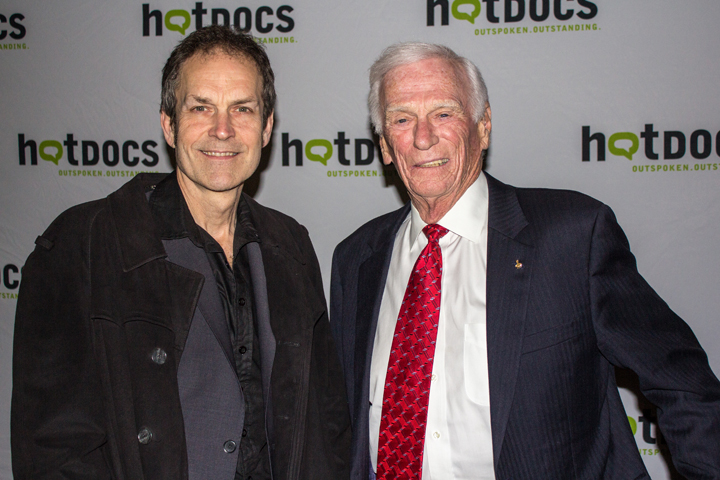TORONTO – On Dec. 14, 1972, Apollo 17 commander Eugene Cernan lifted his foot off the surface of the moon. It is the last footprint that was ever left on our nearest celestial neighbour.

That legacy — being known as the “last man on the moon” has lived on for 42 years. There hasn’t been a mission to the moon in that time and there are no plans to return.
Filmmaker Mark Craig brought Cernan’s life and journey to the moon and back to the big screen with the film, The Last Man on the Moon, which made its Canadian premiere at the Hot Docs Doc Soup festival in Toronto last week.
Listen to a conversation with Gene Cernan, the last man on the moon
Based on Cernan’s biography of the same title, Craig chronicles Cernan’s journey from being a naval aviator (don’t ever call them pilots) to being asked to apply to the astronaut program.

And Cernan’s space odyssey through NASA’s space program is an amazing one. He didn’t sign up for the space program (thinking that it would all be over after the Mercury program ended) yet ended up flying on three missions at the dawn of the space age: Gemini 9, Apollo 10 and Apollo 17, making two trips to the moon (but just one landing).

Get daily National news
Cernan expresses his humility and awe at having achieved such milestones — being a man who’s name will live on in history — throughout the film.
And in person, he’s just as quick to say he’s humbled by it all.
“I asked myself this question: do you fully understand where you are at this moment in time and space and history. And the answer is no,” Cernan said in an interview with Global News. “You almost don’t have the ability to take it all in.”
“Even at this moment it almost sounds arrogant on my part to tell you how wonderful it was to be on the moon.”
NASA doesn’t have any missions to the moon in its future — so far. The Orion capsule, which completed its first test flight in December, is destined for Mars or an asteroid, but that could change as administrations change in the coming years.
In the film, Cernan stands on one of the former Apollo launch pads, the shuttle’s launch service structure abandoned in the distance.
“Could I have imagined it could have come to this?” he says looking around. “I don’t want to remember it this way. I’m just disappointed. I almost wish I hadn’t come here today.”
Speaking with him about that moment, Cernan said that he was saddened to be there knowing that it was slated to be dismantled.
“This is the only place in the entire world that people have left this planet to go and live somewhere else,” he said. “Here was a place where history was made. And who knows? We will go back. People will go back, but when and from where?”
The Last Man on the Moon -Trailer from Mark Stewart Productions on Vimeo.
Though Cernan knows that the future of the American space program isn’t at the forefront of American consciousness as the country struggles with its own economic and political concerns, he believes that the desire to explore still exists in both politics and the general public. Still, it’s a tough pill to swallow after living through the height of the country’s space program.
“We can’t even get an American in orbit on a rocket made in America onto our own space station. We have to go with hat in hand to the Russians. That’s unacceptable,” Cernan said. “Where we were 42 years ago, and where we are today. I didn’t want to come back there. I didn’t want to be part of what’s going on today. I wanted to take the entire world back in time.”







Comments